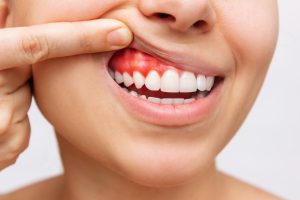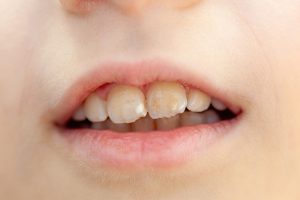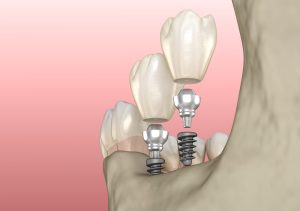What Causes a Tooth to Die? Your Guide From De Pere, WI, Dentist: Dr. Yenchesky
Tooth Death Isn’t the End! Fox View Dental is Here for Every Stage of Tooth Infection.
 If you have a tooth that is dying, you will more than likely have some warning signs. The sooner you get treatment for it from your dentist in De Pere, the better your chances of saving the tooth. Understanding the causes, symptoms, and treatment options for a dying tooth can help you protect your oral health and avoid more serious complications.
If you have a tooth that is dying, you will more than likely have some warning signs. The sooner you get treatment for it from your dentist in De Pere, the better your chances of saving the tooth. Understanding the causes, symptoms, and treatment options for a dying tooth can help you protect your oral health and avoid more serious complications.
Don’t ignore the warning signs of a dying tooth. Contact Fox View Dental today at (920) 336-4201 to schedule an emergency dental appointment. We proudly serve patients from De Pere, Green Bay, Ashwaubenon, and Allouez with comprehensive dental care.
Symptoms of a Dying Tooth
Recognizing the early warning signs of a dying tooth is essential for preserving your oral health. The symptoms often develop gradually, making it important to pay attention to any changes in your teeth or mouth.
Early Warning Signs
The first symptom that usually appears is sudden sensitivity to heat or cold. This often starts to happen when a tooth has become fractured, a condition that is more common than people think. Often, people are unaware that a tooth has become fractured because it can occur over time, and sensitivity initially starts out mild.
Other signs that could indicate a tooth is dying include pain while chewing. This can mean that the nerve of the tooth has become damaged and has become infected. Pain might start out fairly mild, but it will eventually escalate as blood flow to the inflamed area increases.
Advanced Symptoms
Facial swelling can also happen and is usually an indicator that the infection has traveled into the jawbone. This is a serious condition that requires immediate dental attention to prevent further complications.

Additional symptoms may include:
- Persistent bad breath or taste in your mouth
- Swollen or tender gums around the affected tooth
- Visible pus or discharge near the tooth
- Fever or general feeling of illness
- Difficulty opening your mouth fully
Causes of a Dead or Dying Tooth
Dental Decay
Cavities that are not treated will continue to grow, eventually reaching the pulp of the tooth. This creates a pathway for bacteria to enter the tooth root. Although a healthy root will fight infection, it can only hold out for so long before the tooth dies.
Regular dental exams and cleanings are essential for detecting cavities early before they reach the tooth’s pulp. Preventive dentistry measures, including proper oral hygiene and fluoride treatments, can help prevent decay from developing in the first place.
Dental Trauma
If there is trauma to the tooth, such as a blow to the face from a sports injury, fall, or accident, the blood vessels can burst or the blood supply to the tooth can be cut off. Without blood flow to the living tissues inside the tooth root, it will eventually die.
Even seemingly minor trauma can cause internal damage to a tooth. If you experience any injury to your teeth or mouth, it’s important to have them evaluated by a dental professional promptly.
Other Contributing Factors
Several other factors can contribute to tooth death:
- Extensive dental work that compromises the tooth’s structure
- Grinding or clenching teeth (bruxism)
- Gum disease that affects the supporting structures
- Age-related wear and tear
- Genetic factors that affect tooth strength
- Poor dental hygiene
How to Prevent a Dying Tooth
Prevention is always better than treatment. Taking proactive steps to protect your teeth can help prevent the conditions that lead to tooth decay.
Maintain Excellent Oral Hygiene
Brush your teeth twice daily with fluoride toothpaste and floss daily to remove plaque and bacteria that can cause decay. Regular preventive dentistry care, including professional cleanings and fluoride treatments, strengthens your teeth against decay.
Attend Regular Dental Checkups
Schedule dental exams and cleanings every six months to detect problems early. Your dentist can identify cavities, cracks, and other issues before they become serious enough to threaten the tooth’s life.
Protect Your Teeth from Trauma
Wear a mouthguard during sports activities and avoid using your teeth as tools to open packages or bottles. If you grind your teeth at night, ask your dentist about a custom night guard to protect your teeth from damage.
Address Dental Problems Promptly
Don’t ignore tooth pain, sensitivity, or other symptoms. Early treatment for cavities and other dental issues can prevent them from progressing to the point where the tooth dies.
Treatment Options for a Dying or Dead Tooth
Root Canal Treatment
Root canal therapy is often the first line of treatment for a dying tooth. During this procedure, the dentist removes the infected or damaged pulp from inside the tooth, cleans and disinfects the root canals, and seals the tooth to prevent further infection.
After root canal treatment, the tooth typically needs to be restored with a dental crown to protect it and restore its function. While the tooth will no longer be “alive,” it can continue to function normally for many years with proper care.
 Tooth Extraction and Replacement
Tooth Extraction and Replacement
If the tooth cannot be saved with root canal treatment, tooth extraction may be necessary. After extraction, several options are available for your replacement tooth:
- Dental Implants: The most comprehensive replacement option, dental implants replace both the tooth root and crown for the most natural function and appearance.
- Dental Bridges: A bridge can replace one or more missing teeth by anchoring to adjacent healthy teeth.
- Partial Dentures: A removable option for replacing missing teeth.
Restorative Treatments
If the tooth can be saved but has significant damage, restorative treatments may be necessary:
- Dental Fillings: For smaller areas of decay or damage
- Dental Crowns: For more extensive damage that requires complete coverage of the tooth
- Inlays and Onlays: For moderate damage that requires more than a filling but less than a crown
When to Seek Emergency Dental Care
Some symptoms of a dying tooth require immediate attention. Contact Fox View Dental immediately if you experience:
- Severe tooth pain that doesn’t respond to over-the-counter pain medication
- Facial swelling, especially if it affects your ability to swallow or breathe
- Fever along with dental pain
- Visible pus or discharge from the tooth or soft tissue
- Trauma to the tooth from an accident or injury
If you’re experiencing severe dental pain or swelling, don’t wait. Call Fox View Dental at (920) 336-4201 for emergency dental care in De Pere, WI.
The Importance of Early Treatment

- Spread of infection to surrounding teeth and tissues
- Bone loss in the jaw
- Systemic health problems occur if the infection enters the bloodstream
- Need for more extensive and expensive treatment
- Complete loss of the tooth
Regular dental exams and cleanings allow your dentist to monitor your oral health and catch problems early. During these visits, your dentist can detect signs of decay, fractures, or other issues that might lead to tooth death.
Call Our De Pere Dental Office to Learn More About Preventing Tooth Decay
Be alert to any of the warning signs of a dead tooth and visit a De Pere dentist near you twice each year for routine checkups and tooth cleanings. Early treatment is essential if you want to save your tooth.
Don’t let a dying tooth compromise your oral health. Contact Fox View Dental today at (920) 336-4201 to schedule your appointment. Our experienced team provides comprehensive dental care for patients throughout De Pere, Green Bay, Ashwaubenon, and Allouez. We’re here to help you maintain optimal oral health and address any dental concerns promptly and effectively.


 Tooth Extraction and Replacement
Tooth Extraction and Replacement